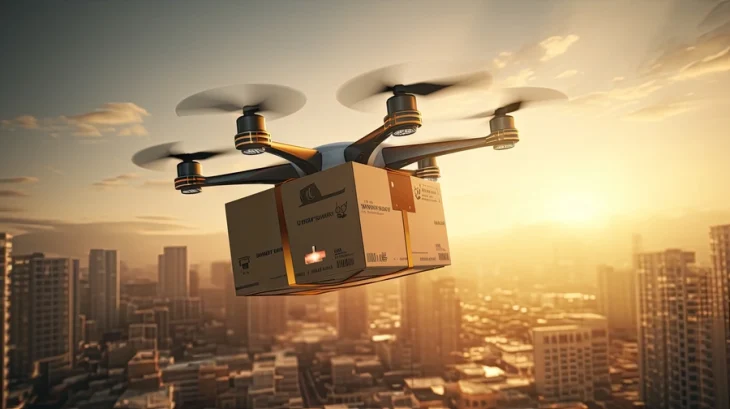
Given the urgent global need for environmental sustainability, the logistics and courier industry are on the verge of a major transition towards a more environmentally friendly approach. Traditionally associated with high levels of carbon emissions and fuel consumption, the sector is actively seeking innovative solutions to change this perception. The use of advanced technologies and developments present a hopeful direction towards a greener and more sustainable future for the industry, ensuring that the transportation of goods does not have a negative impact on our planet.
The arrival of drone delivery systems is highly anticipated as a major advancement in environmentally friendly transportation. By bypassing traffic and delivering products directly to customers’ residences, drones offer a groundbreaking solution to decrease emissions from traditional delivery vehicles. Apart from offering a quicker delivery option, drones run on electricity, resulting in a significant decrease in both fossil fuel usage and greenhouse gas emissions. As drone technology continues to advance, we can expect a wider acceptance of this innovation, particularly in urban areas where their effectiveness and minimal impact on the environment can be maximised.
The logistics sector is taking a significant step towards sustainability with the incorporation of solar power. Solar-powered vehicles such as delivery vans and cargo bikes are gradually becoming a common sight on the roads, utilising renewable energy to facilitate the transportation of goods. These vehicles are outfitted with solar panels that transform sunlight into electricity, which in turn powers the vehicle’s motor and diminishes the dependency on fossil fuels. With the continuous progress and affordability of solar technology, we can expect a notable rise in the adoption of solar-powered vehicles within the courier industry, leading to a reduction in emissions and operational expenses.
Efficiency plays an important role in the pursuit of sustainability. The innovative route optimisation software is transforming the planning of deliveries by ensuring that vehicles follow the most efficient routes available. This software considers different elements such as traffic flow, delivery timeframes, and vehicle capacity to minimise the distance travelled, leading to lower fuel usage and emissions. By optimising delivery routes, this technology not only improves operational efficiency but also plays a vital role in reducing the environmental footprint of shipping and delivery services.
The courier industry is undergoing a major transition towards electric and hybrid vehicles to cut emissions and lower fuel costs. Electric vehicles are ideal for urban delivery due to their emission-free operation, while hybrid vehicles offer a practical interim solution by combining traditional engines with electric motors to reduce fuel usage and emissions. With advancements in battery technology and the expansion of charging infrastructure, the shift towards a fully electric fleet is becoming more achievable, signalling a new era in eco-friendly logistics.
Artificial intelligence (AI) and machine learning are set to play pivotal roles in achieving sustainable logistics. These technologies can analyse vast amounts of data to predict demand, optimise inventory levels, and reduce wastage. By forecasting delivery volumes and locations, companies can pre-emptively position goods closer to the end consumer, thereby shortening delivery routes and decreasing the carbon footprint associated with last-mile deliveries.
The future of sustainable logistics is bright, with innovations such as drone deliveries, solar-powered vehicles, advanced route optimisation software, and the electrification of fleets paving the way for a greener courier industry. These advancements have the capability to analyse extensive data, enabling the prediction of demand, optimisation of inventory levels, and reduction of wastage. Through forecasting delivery volumes and locations, businesses can strategically position goods nearer to the final consumer, resulting in shorter delivery routes and a decrease in the carbon footprint linked to last-mile deliveries.